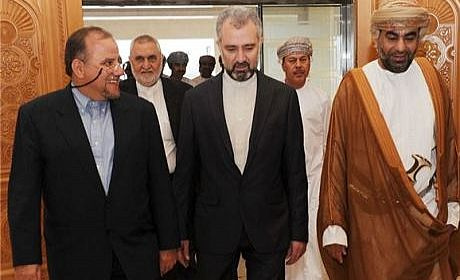Oman’s Smart Ties with Iran and the US

Contrary to many Persian Gulf littoral states, Iran and Oman have good relations. What is the reason behind it?
Both before the revolution and after it, Oman has had good relations with Iran. Even following the war, despite the provocations of the Iraqi regime to create convergence among the Arab countries against the Islamic Republic of Iran, Oman was among the countries which did not support Saddam’s Baath regime and declared its neutrality and did not cut off its relations with Iran. Oman’s approach was the turning point in Iran-Oman relations.
Following the end of the war, political relations between Iran and Oman developed. The opening of embassies in Tehran and Muscat, the expansion of relations and the bilateral visits of high-ranking officials of Iran and Oman are all indicative of good relations between Iran and Oman.
Why has Oman taken such positions with regard to Iran?
This approach is originated in the viewpoint of Sultan Qaboos, the leader of Oman, with regard to our country. Sultan Qaboos of Oman, who has ruled this country for more than four decades, is one of the most important Arab leaders. At the same time, due to his wisdom and prudence in foreign policy affairs and in international and regional policies, there has never been any tension in Iran-Oman relations at any juncture in history, particularly in contemporary history. This matter leaves a positive impact on the trust between the two countries and is an example for other countries of the region and our neighbors.
Are these relations only at the government level?
No. It must not be forgotten that the people of Oman are vey cultured people and they are fond of the Islamic Republic of Iran. There are many cultural similarities between the people of Iran and Oman; especially that the people of Oman have always had good relations with the people who reside in the border provinces of Iran in the south like the Baluchestan and Hormozgan provinces. There have also been good relations between the merchants of both countries and today these relations are expanding.
At the present time, Oman somehow plays the role of mediator between Iran and the US. Why is that?
Common interests and neighborly rights we have with many countries including Oman necessitate that we get each other’s advice on certain issues. The Omanis discuss many regional issues with us and ask for our advice and vice versa. Right now, there are good relations between Iran and Oman in solving certain problems and tensions which have been created between us and some other countries. The Omanis have a positive view of us and believe that Iran is a powerful country with a great civilization, thus, they have maintained their relations with us and stated that the Islamic Republic of Iran is a brother, friend, and trustworthy country. This view has been reflected many times in the statements made by Sultan Qaboos and other political officials. It means that they look at Iran with respect due to their trust and neighborly rights. This issue has caused us to have close relations and to give advice to each other, which has been beneficial for the region. Of course, our view is that if a country like Oman gives advice to us on certain issues or plays the role of mediator, it must provide the rights of the people of Iran to be able to reduce the problems.
Is it possible for this mediating role to become more expanded and for Oman’s role in relations between the US and Iran to become more serious?
It is natural that when two countries have good bilateral relations and view each other with no negativity and mistrust, they can discuss matters more easily. The first condition for giving advice is trusting the other party. Since we trust them and they also trust us, these consultations have been fruitful. The consultations and mediation are done with the aim of solving the problem and not with a unilateral view. It means that the interests of the countries about whom mediation efforts are being made must be maintained. We have had this relation with this outlook and, based on the decisions of the political and security officials of our country, these issues may continue.

